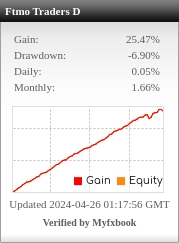
Navigating the ins and outs of forex tax regulations can be a daunting task for any trader. With the rise of automated trading systems like Forex robot expert advisors, it is important to understand how these tools can impact your tax liability. In this review, we will take a closer look at how forex robot expert advisors work and how they may affect your taxes.
Forex robot expert advisors are automated trading systems that make trades on behalf of the user based on pre-programmed algorithms. These robots can analyze market trends and execute trades without human intervention, potentially leading to more efficient trading and potentially higher profits.
One of the key factors to consider when using a forex robot expert advisor is the tax implications. Here are a few important things to keep in mind:
1. Tax classification: Depending on the country you reside in, forex trading profits may be subject to different tax treatments. It is important to consult with a tax professional to understand how your robot’s profits will be taxed.
2. Capital gains tax: In many countries, profits from forex trading are considered capital gains and are subject to capital gains tax. This tax rate may vary depending on how long you held the trade and your overall income level.
3. Record keeping: It is crucial to keep detailed records of all trades made by your forex robot expert advisor. This documentation is essential for accurately reporting your profits and losses to the tax authorities.
Understanding Forex Tax Regulations
When it comes to forex trading, tax regulations can be complex and vary depending on your country of residence. It is important to familiarize yourself with the tax laws that apply to forex trading in your jurisdiction.
Income Tax vs. Capital Gains Tax
In many countries, profits from forex trading are considered capital gains and are subject to capital gains tax. However, some countries may treat forex trading profits as ordinary income, which is taxed at a higher rate. Understanding the tax classification of your forex profits is essential for accurate reporting.
Keeping Detailed Records
To ensure compliance with tax regulations, it is crucial to keep detailed records of all trades made by your forex robot expert advisor. This includes documentation of entry and exit points, trade size, profit and loss figures, and any fees paid to the broker. Keeping accurate records will help you accurately report your profits and losses to the tax authorities.
Consulting with a Tax Professional
Given the complexities of forex tax regulations, it is highly recommended to consult with a tax professional who is knowledgeable about forex trading. A tax advisor can help you understand your tax obligations, identify potential deductions, and ensure compliance with all relevant tax laws.
In conclusion, navigating the tax implications of using a forex robot expert advisor requires careful consideration and planning. By understanding the tax regulations that apply to your trading activities and keeping detailed records of your trades, you can minimize your tax liability and ensure compliance with the law. Consult with a tax professional for personalized advice tailored to your specific circumstances.
For more information on forex trading and tax regulations, visit Forexmoneyman.com. You can also learn more about capital gains tax and income tax on forex trading on Wikipedia.



